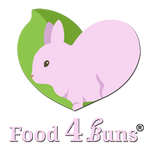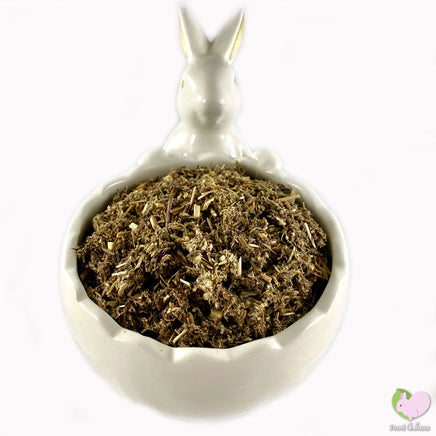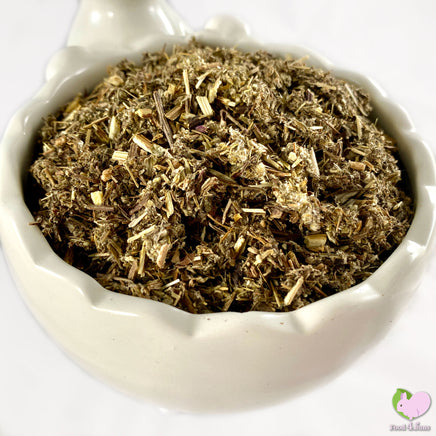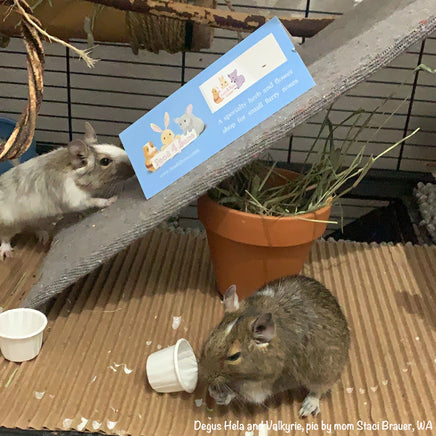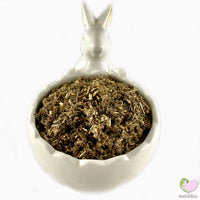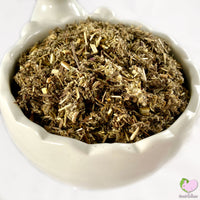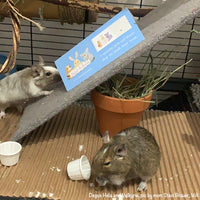Skip to product information
Artemisia vulgaris
As tea it was taken to treat colds and fevers, treat bruises, itching, sores, poison ivy, eczema and help with difficulties with urination or bowel movement. As a snuff it was used to relieve congestion, nosebleeds and headaches. And as smoke it was used to disinfect contaminated areas or to revive patients from coma.
Artemisia vulgaris
(cut and sifted)
commonly known by a large number of names including mugwort, chrysanthemum weed, wild wormwood, and felon herb, grows to 4-6 inches tall.
It is native to Europe, Asia, Alaska and North America. It has been used in flavoring drinks at least since the early Iron Age. Mugwort contains thujone, which is toxic in large amounts or under prolonged intake. It was used in Absinthe to give it its traditional green color and bitter flavor.
Therefore, the sale of Mugwort is regulated by the FDA.
Mugwort pollen, not the herb, is one of the main sources of hay fever and allergic asthma in North Europe, North America and parts of Asia. In many cultures around the world Mugwort is used for a number of medicinal purposes and is one of the most interesting herbs in human history.
As tea it was taken to treat colds and fevers, treat bruises, itching, sores, poison ivy, eczema and help with difficulties with urination or bowel movement. As a snuff it was used to relieve congestion, nosebleeds and headaches. And as smoke it was used to disinfect contaminated areas or to revive patients from coma.
It is a common and nutritious herb for rabbits and degus and has been observed to be consumed by degus instinctively to build up their immune system when they're ill.
Mugwort is very suitable for a proper Degu diet since their sensitive G.I. tracts are not used to wet and sugary food. They can become diabetics very easily.
Degus originate from the arid plains of the Andes in Chile and should therefore be fed a variety of herbs, leaves, roots and some seeds. Even the most common pellets are questionable since all pellets are held together by some form of carbohydrates.
Please keep always in mind when you serve your pet new food:
Some animals need their time to smell and try it since a lot of them have never smelled a flower or certain herbs before.
We, however, found that most critters dig our flower mixes right away. :-)
Start with a 1oz bag unless you KNOW your pet loves that kind of treat since we do not offer refunds, exchange or returns on food.
Please note that depending on the time of harvest and weather conditions the color and size of the items may vary.
Item does not include bunny bowl.
Please note that some of these herbs like dandelions, red clover and nettles contain a larger amount of calcium compared to other herbs or flowers. In their fresh state some of these herbs may be diuretic but if you have an animal with bladder stones or issues with bladder sludge we suggest to consult your vet before offering these as treats.
FDA Disclaimer
The products and statements made about specific products on this web site have not been evaluated by the United States Food and Drug Administration (FDA) and are not intended to diagnose, treat, cure or prevent disease.
